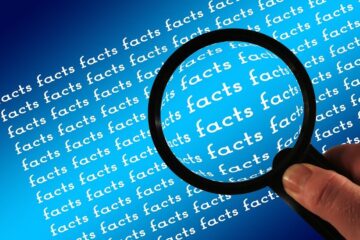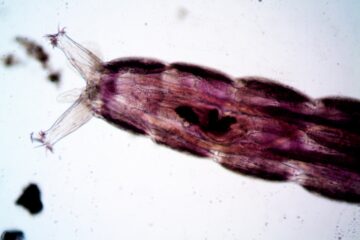![]()
- Introduction
- Question-Document Analysis
- Fingerprint Analysis
- DNA Profiling
- Audio, Video & Photo Authentication and Identification
- Cyber Forensics
- Psychological Evaluation
- Physico-Chemical and Bio-Chemical Examination
- Forensic Linguistics
- Forensic Accounting and Auditing Investigation
- Other Services
- Operational Services
- Conclusion
Introduction
Crime Laboratories are facilities where forensic science services are offered in order for the smooth functioning of the criminal justice system. Forensic science uses scientific techniques and methods to process, collect, preserve and evaluate evidence. The result of such evaluation largely facilitate the determination of the guilt or innocence of an individual. Crime laboratories investigate different kinds of evidence such as biological, physical, chemical or digital evidence.[1] Multiple methods and technique of evaluating, processing, collecting and preserving scientific evidence include weapon identification, document analysis, chemical identification, analysis of traces of hair and fibers, newer disciplines such as DNA evaluation and explosive investigation. In 1910, the first crime lab was established by Professor Edmund Locard of the University of Lyons, France, based on the notion that criminals always leave behind evidence and traces of themselves after committing a crime.[2] In India, the first science laboratory in India was established in Calcutta on 1st July, 1952. It was the brain-child of Dr. B.C. Roy, the former CM of West Bengal. Its director was N.K Sen.
Question-Document Analysis
Forensic laboratories have handwriting experts who provide services such as examination of handwriting, checking the authenticity of a signature, detection of watermarks, secret writing analysis, analysis of alteration of document, verification of rubber stamp and ink etc. This can help reveal any document forgery, falsification, embezzlement, impersonation, counterfeiting, misappropriation, etc. It also facilitates disclosure of fraudulent transactions. This information can reveal the history of document prior to court proceedings, and also allow the court to compare the technical testimony on the document and the oral testimony of witnesses.[3]
Fingerprint Analysis
Finger Print experts conduct numerous examination such as verification of thumb impressions, developing latent fingerprints and 10 digit fingerprinting. The experts are responsible for development of invisible and visible fingerprints, searching and development of fingerprints, palm prints and footprints in the crime scene on objects and surfaces such as doors, windows, contains, glass, documents and walls. The expects also deals with disputed and tampered fingerprints in case of impersonation, recruitment frauds and property manipulation or dispute. It also helps in the acquirement of fingerprint for police clearance, medical licensing, employment verification and immigration etc. It deals with disputed documents such as cheques, sale deeds, will, service registers, promissory notes, bank application forms, memorandum of understanding, bills or receipts, suicide letters, official statements and land registration documents.[4]
DNA Profiling
Crime laboratories provide a wide range of DNA profiling services in India. It provides services to insurance companies, courts, law enforcement agencies, general public, hospitals and clinics in India. Some of the types of cases the DNA experts deal with are Paternity and maternity disputes, Kinship DNA test, Lineage and family dispute resolution, homicide cases, identification of victim in mass disasters, sexual assaut cases, rape cases, Fingerprinting of Living Organ Donors, suspected baby swapping cases, evaluation of crime scene DNA evidence, Missing person identification, VISA DNA test for immigrants and Ancient DNA analysis. Different biological samples examined by experts are saliva, semen, muscles, bones, blood, teeth, nails, hair, bloody garments and other evidences such as knives, iron rods, scissors, used condoms and other objects present in the crime scene.[5]
Audio, Video & Photo Authentication and Identification
With the improvement of technology, The mode of operation of criminals have shifted from conventional to digital methods. In cases involving video or audio recordings of person associated with a crime, incident or act of violation or also facilitates the evaluation of the authenticity of video, photos or audios. Some services provided are authentication of audio recordings on a phone, voice recorders; video recordings on CCTV, digital camera, TV, and mobile phone; audio-video authentication of recording devices that can capture both; authentication of pictures and photographs in all file formats in case of threatening, anonymous, fabricated, defamatory, and pictures in official disputes, scandals and scams.
Cyber Forensics
In the 21st century, crimes committed through computer systems such as Laptop, mobile phones and desktop have become increasingly common. Hence, in order to prevent crimes such as circulating obscene pictures, video and audio, data manipulation, image manipulation, fake messages, blackmailing, human trafficking, data theft etc, it is important to hire forensic experts well versed with computer systems and its likeness. Crime laboratories possess technologies to identify and counter cyber crimes in the form of video and audio authentication, CCTV Footage analysis, fake video analysis, Photographic verification, speaker authentication, email analysis or authentication, Intellectual property theft, hard-disk recovery, text message recovery, IP address tracking, ethical hacking, data recovery from computer and mobile devices etc.
Psychological Evaluation
Psychological screening of suspects though polygraph or lie-detector test is also conducted by experts at crime laboratories in cases involving crimes of kidnapping, fraud, cheating, abuse, infidelity, harassment, threat, terrorism, white collar crimes, and employee loyalty checks in case of dishonesty, doubtful integrity, data leakage and intellectual property theft etc. It also helps test the insanity or detect any mental health problems of a party at court.
Physico-Chemical and Bio-Chemical Examination
Crime Laboratories perform the Examination of various physical, biological and chemical materials such as liquids, unknown powders and substances, comparison of characteristics with other known materials, ignition key examination of stolen cars and motor cycles, examination of tampered and burnt electric meters, analysis of evidence such as soil, debris, hair, blood, fibre, precious materials, paint and glass, counterfeit currency, tyre marks, stamps, semen, shoe prints etc. In case of poisoning, theft, fraud, drowning, fire, accidents, drug trafficking, murder, rape, pilferage, cheating, kidnapping and others.
Forensic Linguistics
Individual have different characteristics while interacting with personal, business, family and official correspondence though text messages, speech, emails, or other methods. The linguistics patterns are in terms of vocabulary, punctuation, grammar, paraphrasing, idioms, emoticons, emojis, other phrases frequently used which distinguishes an individual from others. These information are further used in identification of the author or suspect who has written a particular document, letter, text message, literary writing, routine conversations, blackmail letter, suicide note, social media post etc.
Forensic Accounting and Auditing Investigation
Laboratories also study, analyse, identify questionable data which in terms of figures or numbers in financial documents, statements, balance sheets, audit reports, tally records, notes regarding purchase, sales, expenditure. It can facilitate the identification of violative, fraudulent, illegal and unauthorised documents and individuals or organisation responsible behind such documents. Hence, crimes like fraud, money laundering, bribery, information theft, theft of physical assets, corruption can be uncovered.
Other Services
Forensic Anthropology deals with skeletal remains. Experts under this field assess and examine decomposed skeletal remains to figure out the age, or time of start of decomposition. Further, crime laboratory experts facilitate the identification, examination and individualization of physical evidence from the crime scene. In case of airplane crashes, mass disasters, wars and fire outbreaks, it identifies and evaluates teeth and dentition which can help in finding out the victim it belongs to. In case of bite marks and injuries, the cause of death or accident can be determined. Crime laboratories conduct postmortem examinations which can reveal the cause of death. Forensic pathologists along with toxicologists take tissue samples and determine any poison or other substances and chemicals present in the body of the victim which act as crucial evidence. It identifies insect infestations in the body which can further determine the time period between death and the investigation. It identifies patterns of conducting a crime by a serial killer or habitual offender. Crime laboratories also act as a training hub for new professionals and students. It also conducts insightful sessions and webinars related to their work.
Operational Services
Crime laboratories have a responsibility to maintain proper standards and accreditation. Forensic laboratories have to be safe, secure and un-contaminated with proper work areas and equipment. An unsafe laboratory jeopardizes the safety and health of workers, but also risks the destruction and contamination of crucial evidence. Visitors at Crime Laboratories must be documented and kept under surveillance to prevent the integrity of an evidence from being affected. Some work areas must only be restricted to scientific personnel and security must be able to detect any potential unauthorised entry to the crime laboratory. Many laboratories have centralised security systems which record and restrict access to visitors and other individuals. Crime laboratories have the duty to check the expertise and experience of the laboratory personnel. Individuals working must have proper qualifications and training periods before being assigned to laboratories. Crime laboratories also have quality control programs which are required to abide by official national standards set for such laboratories. Proficiency tests are conducted at laboratories where specimens are submitted which checks the performance of the laboratory. Laboratories are inspected by an external panel of experts who are experienced and well versed with the work performed at the laboratory.[6]
Conclusion
To conclude, Crime Laboratories are important and crucial for conducting forensic investigations. Forensic evidences are very critical information which might alter the course of an investigation or reveal potential leads which may facilitate the identification and prosecution of a guilty individual. It also helps in determine the guilt or innocence of an accused. Contaminated and poor quality evidence may lead to the conviction of an innocent individual or alternatively the release of the actual culprit. Therefore, presence of qualified professionals and maintenance of accreditation standards is a pivotal part of proper analysis, identification and handling of evidences at crime laboratories.
References:
[1] Crime Laboratory, Britannica.com, (July 15, 2022, 9:20 am), https://www.britannica.com/science/crime-laboratory
[2] Crime Laboratories, Encyclopedia.com, (July 15, 10:06 am), https://www.encyclopedia.com/law/encyclopedias-almanacs-transcripts-and-maps/crime-laboratories
[3] Questioned-decument analysis, Britannica, (June 29, 2022, 11:50 pm) https://www.britannica.com/science/forensic-science/Questioned-document-analysis
[4] Disputed Fingerprints, Truth Labs.org, (July 14, 2022, 11:24 am), https://www.truthlabs.org/disputed-fingerprints-fp/
[5] DNA Profiling, Truth Labs.org, (July 15, 2022, 12:00 pm), https://www.truthlabs.org/dna-profiling-dna/
[6] Accreditation of forensic science laboratories, What-When-How.com, (July 15, 2022, 9:00 am), https://what-when-how.com/forensic-sciences/accreditation-of-forensic-science-laboratories/



0 Comments